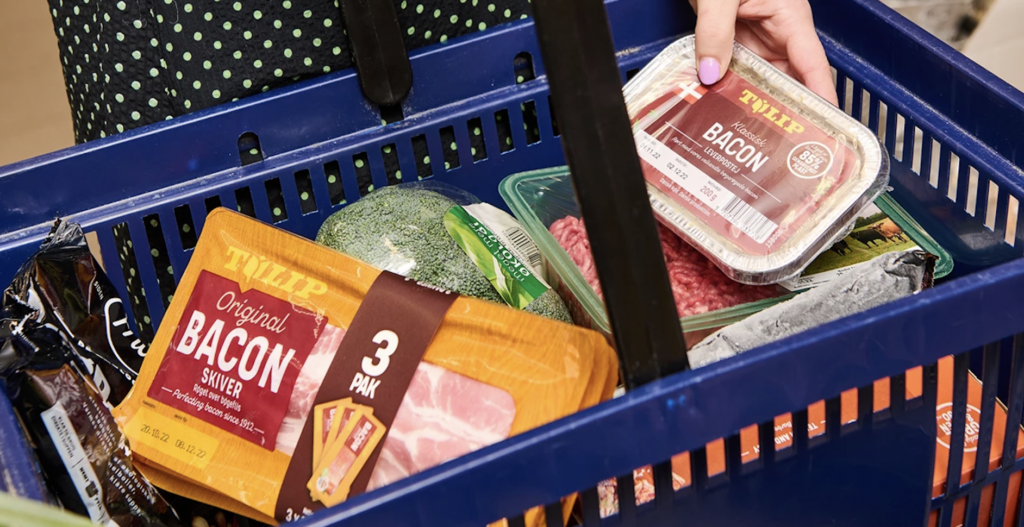A high court in Denmark has ruled that Danish Crown misled consumers by advertising its meat as ‘climate-controlled’ in what is being described as the country’s first ‘greenwashing’ verdict.
The case dates back to a marketing campaign, Europe’s biggest pig producer ran from 2020. A group of non-profit organisations alleged that Danish Crown misrepresented its climate footprint in the campaign, which they said gave the false impression that eating pork is good for the climate, Bloomberg reports.
The court ordered the company to pay 300,000 kroner (£34,400) and to acknowledge it breached marketing laws, after ruling on Friday that it breached the law by labelling its pork as ‘climate-controlled’.
The court found that the label had not been subject to independent control, limiting the average consumer’s ability to make an informed decision, whuch could ‘significantly distort’ the economic behaviour of the average consumer, the Guardian reported.
However, the judges sided with Danish Crown in another complaint, accepting its statement that Danish pork is ‘more climate-friendly than you think’.
It said the statement was relative and cited a report showing that Danish consumers struggle to identify how polluting pork is, with most ranking pigs alongside cows, whereas pork emits less emissions than beef per serving, but more than chicken.
Jens Hansen, a spokesman for the company, said in an interview that Danish Crown had no intention to mislead its customers, in response to the ruling, Bloomberg reported.
Danish Crown dropped the campaign in 2021, following criticism, but continued to defend it, arguing it was meant to highlight the industry’s focus on reducing carbon emissions in pork production. The cooperative, which is controlled by more than 6,000 Danish farmers, has pledged to reduce greenhouse gas emissions by 50% in 2030, the report added.
“Today’s verdict sends a resounding message, not only within Denmark but throughout Europe, that misleading marketing tactics cannot hide behind the shield of freedom of speech. Profiting from climate promises must be backed with legitimate climate action,” said Rune-Christoffer Dragsdahl, the general secretary of the Vegetarian Society of Denmark, which filed the lawsuit in partnership with the Climate Movement, which was backed by the Danish Consumer Council.
Mounting pressure
Meat companies are facing mounting pressure from campaigners and the authorities to prove their climate statements are accurate.
Last week, the state of New York filed a law suit against the US arm of JBS, the world’s largest meat producer and owner of Pilgrim’s, accusing the Brazilian company of misleading customers over its climate goals, including a plan to reach net zero carbon neutral standards by 2040.
Letitia James, the New York attorney general, filed the suit alleging that JBS USA had repeatedly assured the public and consumers with sustainability claims that could, in effect, ‘provide environmentally conscious consumers with a license to eat beef’, the Guardian reported.
The lawsuit claimed JBS ‘has had no viable plan to meet its commitment to be net zero by 2040’.
In a statement to the Wall Street Journal, the company said it disagreed with the attorney general’s characterization of its commitments to sustainability.
“JBS will continue to partner with farmers, ranchers and our food system partners around the world to help feed a growing population while using fewer resources and reducing agriculture’s environmental impact,” a spokeswoman said.




